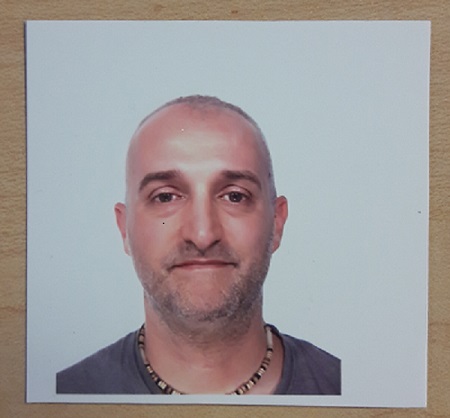Studying at the University of Verona
Here you can find information on the organisational aspects of the Programme, lecture timetables, learning activities and useful contact details for your time at the University, from enrolment to graduation.
Academic calendar
The academic calendar shows the deadlines and scheduled events that are relevant to students, teaching and technical-administrative staff of the University. Public holidays and University closures are also indicated. The academic year normally begins on 1 October each year and ends on 30 September of the following year.
Course calendar
The Academic Calendar sets out the degree programme lecture and exam timetables, as well as the relevant university closure dates..
| Period | From | To |
|---|---|---|
| Sem. 1A | Sep 24, 2018 | Nov 10, 2018 |
| Sem. 1B | Nov 19, 2018 | Jan 12, 2019 |
| Sem. 2A | Feb 18, 2019 | Mar 30, 2019 |
| Sem. 2B | Apr 8, 2019 | Jun 1, 2019 |
| Session | From | To |
|---|---|---|
| Sessione Invernale | Jan 14, 2019 | Feb 16, 2019 |
| Sessione Estiva (Gli esami sono sospesi durante la Sessione di laurea) | Jun 3, 2019 | Jul 27, 2019 |
| Sessione Autunnale | Aug 26, 2019 | Sep 21, 2019 |
| Session | From | To |
|---|---|---|
| Sessione Estiva | Jul 8, 2019 | Jul 13, 2019 |
| Sessione Autunnale - Servizio Sociale | Nov 8, 2019 | Nov 8, 2019 |
| Sessione Invernale | Mar 30, 2020 | Apr 4, 2020 |
| Period | From | To |
|---|---|---|
| Festa di Ognissanti | Nov 1, 2018 | Nov 1, 2018 |
| Festa dell’Immacolata | Dec 8, 2018 | Dec 8, 2018 |
| Vacanze di Natale | Dec 22, 2018 | Jan 6, 2019 |
| Vacanze di Pasqua | Apr 19, 2019 | Apr 23, 2019 |
| Festa della liberazione | Apr 25, 2019 | Apr 25, 2019 |
| Festa del lavoro | May 1, 2019 | May 1, 2019 |
| Festa del Santo Patrono - S. Zeno | May 21, 2019 | May 21, 2019 |
| Festa della Repubblica | Jun 2, 2019 | Jun 2, 2019 |
| Vacanze Estive | Aug 12, 2019 | Aug 17, 2019 |
Exam calendar
Exam dates and rounds are managed by the relevant Humanistic Studies Teaching and Student Services Unit.
To view all the exam sessions available, please use the Exam dashboard on ESSE3.
If you forgot your login details or have problems logging in, please contact the relevant IT HelpDesk, or check the login details recovery web page.
Should you have any doubts or questions, please check the Enrollment FAQs
Academic staff
 stefania.annechini@univr.it
stefania.annechini@univr.it
 roberto.dallachiara@univr.it
roberto.dallachiara@univr.it
 giorgia.decarli@univr.it
giorgia.decarli@univr.it
 annamaria.giarola@univr.it
annamaria.giarola@univr.it
 luciano.pasqualotto@univr.it
luciano.pasqualotto@univr.it
 antonella.salvan@univr.it
antonella.salvan@univr.it
 carlo.soregotti@univr.it
carlo.soregotti@univr.it
 giorgio.zoccatelli@univr.it
giorgio.zoccatelli@univr.it
Study Plan
The Study Plan includes all modules, teaching and learning activities that each student will need to undertake during their time at the University.
Please select your Study Plan based on your enrollment year.
1° Year
| Modules | Credits | TAF | SSD |
|---|
2° Year activated in the A.Y. 2019/2020
| Modules | Credits | TAF | SSD |
|---|
3° Year activated in the A.Y. 2020/2021
| Modules | Credits | TAF | SSD |
|---|
| Modules | Credits | TAF | SSD |
|---|
| Modules | Credits | TAF | SSD |
|---|
| Modules | Credits | TAF | SSD |
|---|
Legend | Type of training activity (TTA)
TAF (Type of Educational Activity) All courses and activities are classified into different types of educational activities, indicated by a letter.
Legislation and administration of social services (2019/2020)
Teaching code
4S02351
Teacher
Coordinator
Credits
6
Language
Italian
Scientific Disciplinary Sector (SSD)
IUS/10 - ADMINISTRATIVE LAW
Period
Sem. 1A, Sem. 1B
Learning outcomes
Knowledge and understanding
- Knowledge and understanding of the rules governing social services organizations
- Knowledge and understanding of the main legal instruments made available to social workers by their institutions
Ability to apply knowledge and understanding
- Ability to integrate their professional work with the main aims of their institutions
- Ability to make full use of the legal instruments made available by their institutions
- Ability to know and respect the limits given by the legal apparatus to their actions
- Ability to write a social work report
SPECIFIC OBJECTIVES
The objective of the course is to provide students with the fundamental concepts necessary in order to identify, understand and critically analyze the various legislation (constitutional law, primary law, regulations) governing social services, and consequently to ascertain the limits imposed by the law on the professional action by social workers. In particular, the course will impart basic legal knowledge regarding the structure and functioning of (public) social services organizations, the tasks and functions of social workers (for example, the preparation of action plans and social reports) as well as the legal instruments available in order to perform those tasks and functions, and the relationship between the social worker and the institution of origin.
Program
I. The sources of social services law.
II. The integrated system of social services intervention under the Constitution and Italian Law no. 328/2000.
III. The (categories of) persons entitled to social assistance.
IV. The extent of the right to social assistance.
V. The public administrations and private bodies providing social-assistance services.
V.1. Institutional structure and organization of the integrated system of social services
VI. The social professions.
VI.1. The social worker.
VI.2. Protection of confidentiality in the social service.
| Author | Title | Publishing house | Year | ISBN | Notes |
|---|---|---|---|---|---|
| A. GUALDANI | DIRITTO DEI SERVIZI SOCIALI | G. Giappichelli editore | 2019 | 9788892116290 | Si precisa che il testo è: consigliato agli studenti FREQUENTANTI ed agli studenti NON FREQUENTANTI ammessi a sostenere l’esame ai sensi dell’art. 24, commi 4 e 5 del regolamento didattico del corso di laurea (ad esempio studenti erasmus in “uscita”); è da studiare limitatamente ai capitoli IV, V, VI, VII, IX; non è alternativo, ma complementare all'altro testo consigliato per gli studenti frequentanti. Si precisa altresì che gli studenti frequentanti devono necessariamente integrare il testo con le nozioni, le questioni e i problemi sviluppati durante le lezioni frontali. |
| R. BIN, D. DONATI, G. PITRUZZELLA, | LINEAMENTI DI DIRITTO PUBBLICO PER I SERVIZI SOCIALI (Edizione 3) | G. Giappichelli editore | 2019 | 9788892129924 | Si precisa che il testo è: consigliato agli studenti FREQUENTANTI ed agli studenti NON FREQUENTANTI ammessi a sostenere l’esame ai sensi dell’art. 24, commi 4 e 5 del regolamento didattico del corso di laurea (ad esempio studenti erasmus in “uscita”); è da studiare limitatamente al paragrafo IX del capitolo XIII; non è alternativo, ma complementare all'altro testo consigliato per gli studenti frequentanti. Si precisa altresì che gli studenti frequentanti devono necessariamente integrare il testo con le nozioni, le questioni e i problemi sviluppati durante le lezioni frontali. |
| S. A. FREGO LUPPI - E. CODINI - A. FOSSATI | MANUALE DI DIRITTO DEI SERVIZI SOCIALI | G. Giappichelli editore | 2019 | Si precisa che il testo è: consigliato agli studenti NON FREQUENTANTI ammessi a sostenere l’esame ai sensi dell’art. 24, commi 4 e 5 del regolamento didattico del corso di laurea (ad esempio studenti erasmus in “uscita”); è da studiare limitatamente ai capitoli II – III – VII - VIII della parte prima nonché dei capitoli IV - VII - VIII della parte terza; non è alternativo, ma complementare all'altro testo consigliato per studenti frequentanti e non frequentanti. |
Examination Methods
The examination will involve an oral discussion aimed at verifying knowledge of the law governing social services and in particular of the tasks and functions of the social worker and the capacity to deploy systematically the knowledge acquired and to analyse legal questions related to social services, including in particular limits on the action of social workers.
ERASMUS students
ERASMUS students are invited to contact the teacher responsible at the start of the course in order to be set a specific topic to be analysed in greater depth in a course essay. That essay will then be the object of an oral discussion in the examinations scheduled within the academic calendar.
Type D and Type F activities
Modules not yet included
Career prospects
Module/Programme news
News for students
There you will find information, resources and services useful during your time at the University (Student’s exam record, your study plan on ESSE3, Distance Learning courses, university email account, office forms, administrative procedures, etc.). You can log into MyUnivr with your GIA login details: only in this way will you be able to receive notification of all the notices from your teachers and your secretariat via email and soon also via the Univr app.
Student mentoring
Linguistic training CLA
Gestione carriere
Practical information for students
Documents
| Title | Info File |
|---|---|
|
|
pdf, it, 325 KB, 02/05/23 |
|
|
pdf, it, 212 KB, 02/05/23 |
|
|
pdf, it, 131 KB, 02/05/23 |
Graduation
Documents
| Title | Info File |
|---|---|
|
|
pdf, it, 99 KB, 13/10/23 |
|
|
pdf, it, 101 KB, 10/04/24 |
List of theses and work experience proposals
| theses proposals | Research area |
|---|---|
| Proposta tesi | Various topics |
Assistente Sociale
Comune e Università di Verona collaborano per la formazione alla professione di assistente sociale.
Professione Assistente Sociale
Pagina aggiornata il 18/1/2022
Stage e Tirocini
Le attività̀ di tirocinio degli studenti si svolgono presso strutture esterne, convenzionate con l’Università degli Studi di Verona ai sensi delle vigenti disposizioni in materia. Nelle strutture esterne gli studenti svolgono le attività di tirocinio sotto la responsabilità di un assistente sociale (Tutor-supervisore), appartenente a dette strutture, coordinato a sua volta dal responsabile del tirocinio presso il Corso di Studio.
In assenza di un assistente sociale, operante nella struttura esterna, il Collegio didattico, per quanto di competenza, decide, su proposta dei responsabili del tirocinio, in ordine alle condizioni per l’effettuazione o la prosecuzione delle attività di tirocinio degli studenti interessati. Le attività di tirocinio sono obbligatorie per almeno 450 ore.
Il Collegio didattico, in deroga alle disposizioni del presente articolo, può consentire a studenti che si trovino in particolari condizioni, in specie se disabili, lavoratori o impegnati in organismi collegiali dell’Università degli Studi di Verona, di non ottemperare in parte all’obbligo di frequenza alle attività di tirocinio, predisponendo forme alternative di tirocinio, anche tramite supporti telematici e multimediali interattivi.
I responsabili delle attività di tirocinio presso il Corso di Studio, anche avvalendosi di appositi collaboratori o tutori esterni, accertano la presenza degli studenti presso le rispettive strutture. A tal fine utilizzano un apposito libretto di frequenza per ciascuno studente.
Al termine dell’attività di tirocinio, lo studente deve presentare una relazione scritta al responsabile di tale attività presso il Corso di Studio. Lo studente elabora la relazione scritta, controfirmata dal Tutor-supervisore. La relazione finale viene valutata dal responsabile del tirocinio presso il Corso di Studio e deve tenere conto degli obiettivi prefissati dal Collegio didattico.
La valutazione viene attribuita al tirocinio nel seguente modo: sufficiente = 1; buono = 2; ottimo = 3; eccellente = 4 e verrà aggiunta alla media dei voti del curriculum al momento della discussione della tesi.
Gli Uffici della Direzione Didattica e Servizi agli Studenti predispongono la documentazione necessaria allo svolgimento delle attività̀ di tirocinio, comprese attestazioni e certificazioni.
Nel caso in cui lo studente partecipi a programmi di mobilità internazionale, le attività̀ di tirocinio vengono regolamentate come segue:
A – Lo studente svolge il Tirocinio presso la sede estera.
Se lo studente svolge il Tirocinio all’estero si ritengono assolti gli obbligo relativi al Laboratorio se:
- - lo studente aggiorna il proprio docente/tutor con brevi relazioni mensili da inviare mezzo mail, sull’andamento del lavoro svolto presso la sede estera;
- - produce una relazione finale completa del tirocinio svolto.
La valutazione finale del laboratorio di guida al tirocinio sarà̀ effettuata da parte del tutor del laboratorio sulla base della relazione dello studente tenendo conto della eventuale valutazione da parte del supervisore estero.
B – Lo studente non svolge il Tirocinio presso la sede estera.
Se lo studente non svolge il Tirocinio nella sede estera e lo deve fare al rientro:
lo studente effettua uno/due incontri individuali iniziali con il docente/tutor in cui predisporre quanto necessita per l’avvio del tirocinio e nei quali verranno forniti materiali, griglie ed eventuali testi di riferimento;
invia brevi relazioni mensili sull’andamento del tirocinio che sarà svolto in Italia al di fuori del periodo in cui si tiene il laboratorio di guida al tirocinio;
produce la relazione finale completa del tirocinio svolto”.
- Tutte le informazioni in merito agli stage per futuri studenti sono disponibili alla pagina Stage e tirocini.
- Tutte le informazioni in merito agli stage per studenti iscritti sono pubblicate in MyUnivr - come fare per - stage e tirocini.
- Tutte le informazioni in merito agli stage per le aziende sono disponili alla pagina Stage e tirocini per azienze.

 0458028369
0458028369




















